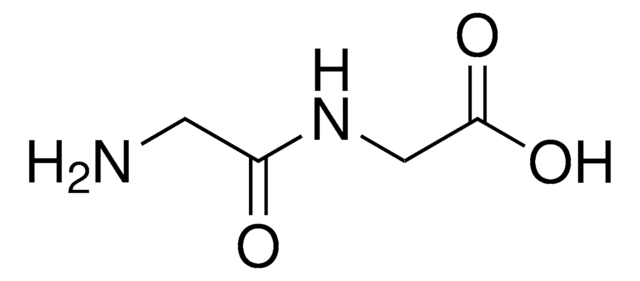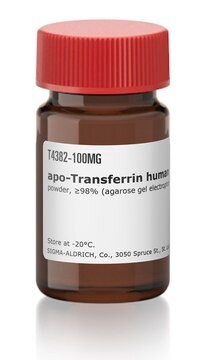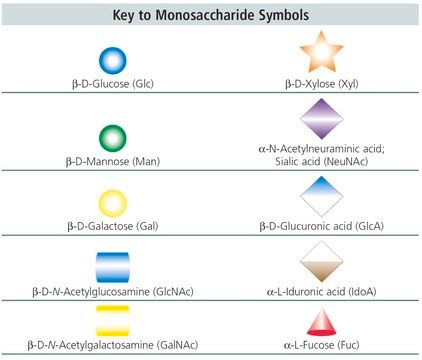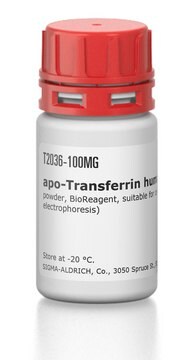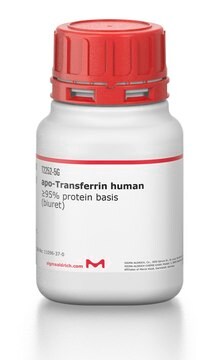B11001
EnPresso® B
Growth system for expressing protein in bacteria
Sign Into View Organizational & Contract Pricing
All Photos(3)
About This Item
UNSPSC Code:
12352200
Recommended Products
sterility
sterile; γ-irradiated
form
tablet
manufacturer/tradename
(BioSilta Oy)
pH
6.8
shipped in
ambient
storage temp.
room temp
General description
Enpresso B by BioSilta Oy
Biochem/physiol Actions
EnPresso® B is a pre-sterilized growth system designed to increase the yield of functional protein from E. coli-based expression systems.
EnPresso® growth systems provide optimal conditions for growth, metabolism and protein expression in microbial cultures. Protein yields are increased by enabling cultures to reach far higher cell densities than those achieved using conventional media. By controlling growth rate and metabolism, a greater proportion of expressed protein can be correctly folded to improve solubility, minimize the risk of inclusion body formation, and ensure functionality of the final product.
EnPresso® growth systems maintain pH, provide adequate minerals, vitamins and trace elements to support growth, and use proprietary EnBase™ technology to ensure a constant, slow release of glucose from a polysaccharide substrate.
See all available products from EnPresso B Growth Systems.
EnPresso® growth systems provide optimal conditions for growth, metabolism and protein expression in microbial cultures. Protein yields are increased by enabling cultures to reach far higher cell densities than those achieved using conventional media. By controlling growth rate and metabolism, a greater proportion of expressed protein can be correctly folded to improve solubility, minimize the risk of inclusion body formation, and ensure functionality of the final product.
EnPresso® growth systems maintain pH, provide adequate minerals, vitamins and trace elements to support growth, and use proprietary EnBase™ technology to ensure a constant, slow release of glucose from a polysaccharide substrate.
See all available products from EnPresso B Growth Systems.
Physical form
EnPresso® B is supplied in a kit providing sufficient reagents for 20 separate 50 ml cultures. Included in the kit:
40 tablets in 20 white bags
20 tablets in 20 black bags
1 bottle (5 ml) Reagent A
40 tablets in 20 white bags
20 tablets in 20 black bags
1 bottle (5 ml) Reagent A
Legal Information
EnBase is a trademark of BioSilta Oy
EnPresso is a registered trademark of BioSilta Oy
Certificates of Analysis (COA)
Search for Certificates of Analysis (COA) by entering the products Lot/Batch Number. Lot and Batch Numbers can be found on a product’s label following the words ‘Lot’ or ‘Batch’.
Already Own This Product?
Find documentation for the products that you have recently purchased in the Document Library.
Customers Also Viewed
Jian Li et al.
Journal of biotechnology, 193, 16-22 (2014-12-03)
Heterologous expression of secondary metabolite biosynthesis pathways in a surrogate host, e.g. Escherichia coli, has emerged in recent years as an effective way to produce complex natural products. The nonribosomal peptide (NRP) antibiotic valinomycin has been recombinantly produced in E.
Thomas Horn et al.
Redox biology, 1, 566-577 (2013-11-28)
Mammalian lipoxygenases play a role in normal cell development and differentiation but they have also been implicated in the pathogenesis of cardiovascular, hyperproliferative and neurodegenerative diseases. As lipid peroxidizing enzymes they are involved in the regulation of cellular redox homeostasis
Thomas Horn et al.
Biochimica et biophysica acta, 1831(12), 1702-1713 (2013-08-21)
Mammalian lipoxygenases belong to a family of lipid-peroxidizing enzymes, which have been implicated in cardiovascular, hyperproliferative and neurodegenerative diseases. Here we report that a naturally occurring mutation in the hALOX15 gene leads to expression of a catalytically near-null enzyme variant
Kristof Zarschler et al.
Microbial cell factories, 12, 97-97 (2013-10-29)
For their application in the area of diagnosis and therapy, single-domain antibodies (sdAbs) offer multiple advantages over conventional antibodies and fragments thereof in terms of size, stability, solubility, immunogenicity, production costs as well as tumor uptake and blood clearance. Thus
Kaisa Ukkonen et al.
Microbial cell factories, 12, 73-73 (2013-07-31)
Fab antibody fragments in E. coli are usually directed to the oxidizing periplasmic space for correct folding. From periplasm Fab fragments may further leak into extracellular medium. Information on the cultivation parameters affecting this leakage is scarce, and the unpredictable
Our team of scientists has experience in all areas of research including Life Science, Material Science, Chemical Synthesis, Chromatography, Analytical and many others.
Contact Technical Service
